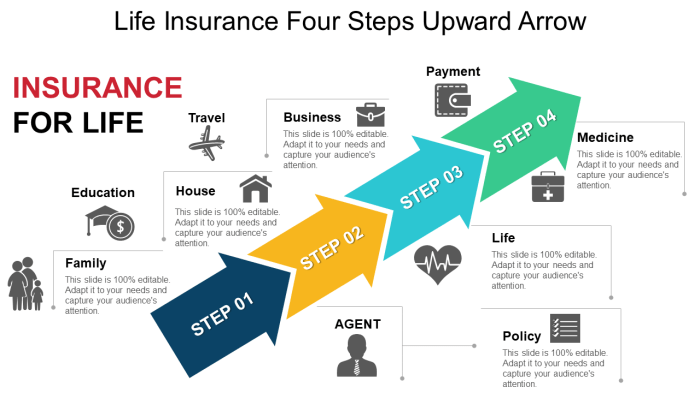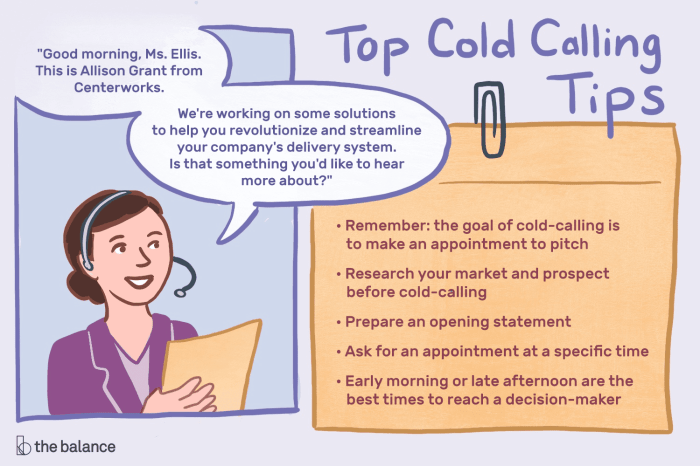In the competitive world of insurance, effective communication is the cornerstone of success. Whether you’re an insurance agency or a broker, the ability to connect with clients, understand their needs, and present solutions with clarity and empathy is paramount. This comprehensive guide delves into the art of phone communication, providing valuable calling tips and strategies to elevate your customer interactions and drive business growth.
From establishing rapport and building trust to handling objections and closing the call, we’ll explore the nuances of effective phone communication in the insurance industry. Discover how to create a positive first impression, actively listen to client concerns, and tailor your communication style to meet their unique needs.
Learn the art of upselling and cross-selling, ensuring that you’re not only meeting client expectations but also uncovering opportunities for growth.
Introduction
The insurance industry revolves around effective communication between insurance agencies and brokers with their clients. In a competitive market, delivering exceptional customer service is crucial for success, and phone calls play a vital role in fostering strong relationships and ensuring customer satisfaction.
This article provides practical calling tips for insurance agencies and brokers to enhance their communication skills and deliver a positive customer experience.
Preparing for the Call
Before initiating a call, preparation is key to ensuring a smooth and productive conversation.
Research the client’s needs and policy information
Understanding the client’s unique situation and policy details allows the agent to tailor the conversation and provide relevant information.
Organize necessary documents and information
Having essential documents, such as policy details, claims history, and quotes, readily available during the call streamlines the process and avoids unnecessary delays.
Set clear objectives for the call
Define the purpose of the call, whether it’s to provide policy updates, discuss claims, or offer additional coverage options.
Preparation Before the Call

Preparing for a phone call with a potential client is crucial in the insurance industry. Gathering information and having a structured approach can help insurance agencies and brokers make the most of each conversation.
Gathering Information
Before initiating a call, it’s essential to gather as much information as possible about the caller and their needs. This can include their name, contact details, and the reason for their inquiry. Knowing these details allows the agent or broker to tailor the conversation and address the caller’s specific concerns effectively.
Structured Call Script
Having a structured call script can serve as a valuable guide during the conversation. It helps agents and brokers stay focused, ensures they cover all relevant points, and prevents rambling. The script should include an introduction, an overview of the caller’s needs, a presentation of the insurance options, and a call to action.
Creating a Positive First Impression
The first few moments of a phone call are critical in creating a positive and professional first impression. Agents and brokers should greet the caller warmly, introduce themselves clearly, and actively listen to their concerns. Maintaining a friendly and respectful tone throughout the conversation is essential to building rapport and trust.
Establishing Rapport and Building Trust
Establishing a connection with the caller and building rapport are crucial for creating a positive and productive conversation. Active listening and empathy are essential skills that can enhance the caller’s experience and foster trust.
Techniques for Establishing Rapport
1. Be Warm and Friendly
Greet the caller warmly and use a friendly tone of voice. A genuine smile can be heard in your voice and can make a big difference in setting a positive tone for the conversation.
2. Use the Caller’s Name
Address the caller by their name throughout the conversation. This personal touch shows that you value them and are paying attention to what they have to say.
3. Show Empathy
Try to understand the caller’s perspective and empathize with their situation. Acknowledge their feelings and concerns, and let them know that you are there to help.
4. Be Patient
Give the caller enough time to express themselves fully. Don’t interrupt or rush them. Being patient shows that you respect their time and are genuinely interested in what they have to say.
5. Be Authentic
Be yourself and let your personality shine through. People can tell when you’re being fake, so be genuine and authentic in your interactions.
Examples of Phrases and Techniques to Demonstrate Genuine Care and Understanding
- “I understand your frustration, and I’m here to help.”
- “I’m sorry to hear that you’re going through this. I can imagine how difficult it must be.”
- “I’m here to listen and support you in any way I can.”
- “I appreciate your patience and understanding.”
- “I’m committed to finding a solution that works for you.”
Presenting Information Clearly and Concisely

Effective communication is paramount in insurance sales. Agents and brokers must convey information clearly and concisely to help callers understand complex insurance concepts and make informed decisions. Clear communication fosters trust, builds rapport, and increases the likelihood of a successful sale.
Tailoring Communication to Caller’s Needs
Tailoring the communication style to the caller’s needs and understanding is crucial. Assess the caller’s knowledge level, preferences, and communication style. Use simple, non-technical language if the caller is unfamiliar with insurance jargon. Conversely, if the caller is knowledgeable, use more technical terms to convey information efficiently.
Structuring the Conversation for Clarity
Structure the conversation logically and coherently to ensure clarity. Begin by introducing yourself, the purpose of the call, and the benefits of the insurance product or service. Use clear and concise language to explain the key features, coverage options, and benefits.
Avoid overwhelming the caller with too much information. Instead, focus on the most relevant details and provide additional information only if requested.
Using Examples and Visual Aids
Incorporate examples, analogies, and visual aids to illustrate complex concepts and make them more relatable. Examples and visual aids help the caller visualize the benefits of the insurance product or service and understand how it can meet their specific needs.
Visual aids can include charts, graphs, infographics, or brochures.
Active Listening and Empathy
Active listening and empathy are essential for effective communication. Pay attention to the caller’s questions, concerns, and objections. Acknowledge their feelings and demonstrate empathy by showing that you understand their perspective. Active listening also helps identify the caller’s needs and tailor the conversation accordingly.
Summarizing and Confirming Understanding
Summarize the key points of the conversation and confirm the caller’s understanding throughout the call. This ensures that the caller has a clear understanding of the information provided and helps identify any areas that require further clarification. Summarizing also helps build rapport and trust by demonstrating that you value the caller’s time and attention.
Handling Objections and Concerns
Addressing objections and concerns is a crucial aspect of effective communication in the insurance industry. It requires empathy, understanding, and the ability to find common ground with the caller.
Handling objections and concerns effectively involves several key strategies:
Acknowledging the Caller’s Concerns
Acknowledging the caller’s concerns demonstrates that you are listening and understanding their perspective. This can be done by using phrases like “I understand your concern” or “I appreciate your feedback.” By acknowledging the caller’s concerns, you create a sense of trust and rapport, making them more receptive to your response.
Finding Common Ground
Finding common ground with the caller helps establish a connection and builds trust. This can be done by identifying shared interests or goals. For example, if the caller is concerned about the cost of insurance, you might say, “I understand that cost is a concern for many people.
Let’s work together to find a plan that fits your budget.” By finding common ground, you can create a sense of mutual understanding and cooperation.
Addressing Objections with Empathy
When addressing objections, it’s important to show empathy and understanding. This means putting yourself in the caller’s shoes and trying to see things from their perspective. By showing empathy, you can create a more positive and productive conversation. For example, if the caller is concerned about the claims process, you might say, “I understand that dealing with a claim can be stressful.
Let me explain our claims process in detail so you know exactly what to expect.” By showing empathy, you can help the caller feel heard and understood, making them more likely to be receptive to your response.
Providing Clear and Concise Information
When addressing objections, it’s important to provide clear and concise information. This means using language that the caller can easily understand and avoiding jargon or technical terms. It also means being specific and providing concrete examples. For example, if the caller is concerned about the coverage limits on their policy, you might say, “Your policy covers up to $100,000 in damages.
If you need more coverage, we can discuss increasing your limits.” By providing clear and concise information, you can help the caller understand the issue and make an informed decision.
Upselling and Cross-Selling Opportunities

In the insurance industry, upselling and cross-selling are effective techniques to expand the business and enhance customer satisfaction. Upselling involves offering a higher-value or more comprehensive version of the current product or service, while cross-selling involves recommending complementary products or services that complement the caller’s existing coverage.
Identifying opportunities for upselling or cross-selling requires careful listening to the caller’s needs, understanding their current coverage, and assessing their potential risks and concerns. By presenting these opportunities in a manner that highlights the benefits and aligns with the caller’s unique situation, insurance professionals can deliver personalized and tailored solutions that address their evolving needs.
Benefits of Upselling and Cross-Selling
- Increased Revenue: Upselling and cross-selling can generate additional revenue for the agency or brokerage.
- Improved Customer Retention: By fulfilling a wider range of customer needs, insurance professionals can enhance customer satisfaction and loyalty, leading to improved retention rates.
- Enhanced Customer Service: Proactively identifying and presenting suitable upselling or cross-selling opportunities demonstrates a commitment to providing comprehensive and tailored solutions, fostering positive customer experiences.
Closing the Call and Following Up

Effectively closing a call and following up with the caller are crucial steps in providing excellent customer service and ensuring satisfaction. These actions demonstrate professionalism, attention to detail, and a commitment to meeting the caller’s needs.
Techniques for Closing the Call
To close the call effectively, consider the following techniques:
- Summarize Key Points: Briefly recap the main points discussed during the call. This ensures that both parties are on the same page and that nothing important was overlooked.
- Confirm Understanding: Ask the caller if they have any questions or concerns to address before moving forward. This step demonstrates active listening and a willingness to clarify any uncertainties.
- Provide Next Steps: Clearly Artikel the next steps in the process, whether it’s scheduling a follow-up call, providing additional information, or processing a request. This helps the caller feel confident and informed about what to expect.
- Thank the Caller: Express gratitude for the caller’s time and for choosing your agency or brokerage. This simple gesture shows appreciation and leaves a positive impression.
Importance of Following Up
Following up with the caller after the call is essential for several reasons:
- Ensures Satisfaction: A follow-up call or email demonstrates that you value the caller’s business and are committed to their satisfaction. This can lead to increased customer loyalty and positive word-of-mouth.
- Addresses Lingering Questions: The caller may have additional questions or concerns that they didn’t think of during the initial call. Following up provides an opportunity to address these issues and ensure that the caller has a complete understanding of the situation.
- Provides Additional Information: Sometimes, new information becomes available after the initial call. A follow-up call or email allows you to share this information with the caller and keep them updated on the status of their request or policy.
Effective Follow-Up Methods
There are several effective ways to follow up with callers:
- Personalized Email: Send a personalized email thanking the caller for their time and reiterating the key points discussed during the call. Include any additional information or resources that may be helpful to the caller.
- Follow-Up Call: Schedule a follow-up call to check in on the caller and ensure that they are satisfied with the service they received. This is especially important for complex cases or when the caller has expressed concerns.
- Customer Satisfaction Survey: Send a customer satisfaction survey to gather feedback on the caller’s experience. This feedback can be used to identify areas for improvement and ensure that your agency or brokerage is meeting the needs of its customers.
Measuring and Evaluating Call Performance

Tracking and evaluating call performance is crucial for insurance agencies and brokers to identify areas for improvement and enhance the overall customer experience. By measuring key metrics and analyzing call data, businesses can gain valuable insights into the effectiveness of their communication strategies and make data-driven decisions to improve performance.
There are several key metrics that can be used to measure call performance, including:
- Call Duration: The average length of a call provides insights into the efficiency of the conversation and the agent’s ability to handle customer inquiries promptly.
- Resolution Rate: The percentage of calls where the customer’s issue is resolved during the initial contact indicates the effectiveness of the agent in addressing customer concerns.
- Customer Satisfaction: Customer feedback, such as surveys or ratings, measures the overall satisfaction of customers with the quality of service they received during the call.
By analyzing call performance data, insurance agencies and brokers can identify trends and patterns that reveal areas for improvement. For instance, if the average call duration is high, it may indicate a need for additional training for agents to handle customer inquiries more efficiently.
Similarly, a low resolution rate could suggest a lack of knowledge or resources for agents to address customer concerns effectively.
Using call performance data, businesses can make informed decisions to improve their communication strategies and enhance the customer experience. This may involve:
- Targeted Training: Identifying areas where agents need additional training or skill development based on call performance data.
- Process Optimization: Streamlining internal processes to reduce call duration and improve resolution rates.
- Resource Allocation: Adjusting staffing levels or resources to ensure adequate support during peak call volumes.
- Customer Feedback Mechanisms: Implementing regular customer feedback surveys or ratings to gather insights into customer satisfaction.
By continuously measuring and evaluating call performance, insurance agencies and brokers can gain valuable insights into the effectiveness of their communication strategies and make data-driven decisions to improve the overall customer experience.
Continuous Learning and Improvement

In the ever-evolving insurance industry, staying updated with the latest trends and best practices is essential for insurance agencies and brokers to remain competitive and provide exceptional service. Continuous learning and professional development are the cornerstones of a successful insurance professional.A
commitment to continuous learning ensures that agents and brokers possess the necessary knowledge, skills, and expertise to navigate the complexities of the insurance landscape effectively. This includes staying abreast of regulatory changes, new products and services, and industry best practices.
Benefits of Continuous Learning
- Enhanced communication skills enable insurance professionals to convey complex insurance concepts clearly and persuasively to clients.
- Increased knowledge of industry trends and best practices empowers professionals to provide tailored solutions that meet the unique needs of clients.
- Staying updated with regulatory changes ensures compliance and helps avoid potential legal issues.
- Continuous learning fosters a culture of innovation and encourages professionals to think creatively and explore new opportunities.
Creating a Culture of Continuous Learning
- Encourage attendance at industry workshops, seminars, and conferences: These events provide valuable opportunities for professionals to learn from experts, network with peers, and stay updated on the latest developments.
- Provide access to online learning resources: Online courses, webinars, and podcasts offer flexible and convenient ways for professionals to learn at their own pace.
- Create a mentorship program: Pairing experienced professionals with newer agents or brokers can facilitate knowledge transfer and provide guidance for career development.
- Recognize and reward learning achievements: Celebrating and acknowledging professional development efforts motivates employees to continuously improve.
Additional Tips and Resources

Effective calling techniques can significantly enhance the communication skills of insurance professionals, leading to improved sales and customer satisfaction. Here are some additional tips and strategies to consider, along with recommended resources for further learning and development.
Active Listening and Empathy
Demonstrate active listening skills by paying full attention to the customer’s concerns and needs. Show empathy by understanding their perspective and acknowledging their feelings.
Tailoring the Approach
Tailor your approach based on the customer’s communication style and preferences. Adjust your tone, language, and pace to create a comfortable and engaging conversation.
Asking Open-Ended Questions
Use open-ended questions to encourage the customer to provide detailed responses. This helps uncover their needs and concerns more effectively.
Handling Difficult Customers
Remain calm and professional when dealing with difficult customers. Listen actively, acknowledge their concerns, and work towards finding a mutually beneficial solution.
Continuous Learning and Improvement
Stay updated with industry trends, regulations, and product offerings through ongoing learning. Seek feedback from colleagues, supervisors, and customers to identify areas for improvement.
Recommended Resources
To further enhance your communication skills and sales techniques, consider the following resources:
- Books:
- “The Psychology of Selling” by Brian Tracy
- “The Art of Closing the Sale” by Zig Ziglar
- “SPIN Selling” by Neil Rackham
- Articles:
- “7 Sales Techniques That Will Help You Close More Deals” by HubSpot
- “How to Improve Your Communication Skills in Sales” by The Balance Careers
- “The 10 Commandments of Effective Sales Communication” by Salesforce
- Online Courses:
- “Sales Mastery: The Complete Sales Training Course” by Udemy
- “The Art of Sales: Mastering the Psychology of Selling” by Coursera
- “Insurance Sales Training: The Ultimate Guide” by LinkedIn Learning
Training and Certification Programs
Consider enrolling in training and certification programs offered by reputable organizations to enhance your skills and knowledge in insurance sales and customer service:
- The National Alliance for Insurance Education and Research (NAIER): Offers a range of courses and certifications for insurance professionals, including the Certified Insurance Counselor (CIC) and the Certified Risk Manager (CRM) designations.
- The American Institute for Chartered Property Casualty Underwriters (AICPCU): Provides various courses and designations for property and casualty insurance professionals, such as the Chartered Property Casualty Underwriter (CPCU) and the Associate in Insurance Services (AIS) designation.
- The Insurance Institute of America (IIA): Offers a variety of courses and designations for insurance professionals, including the Certified Insurance Service Representative (CISR) and the Certified Personal Insurance Counselor (CPIC) designation.
Closing Summary

As you master these calling tips and incorporate them into your daily practice, you’ll notice a remarkable transformation in your client interactions. You’ll build stronger relationships, increase customer satisfaction, and ultimately drive business success. Remember, effective communication is the key to unlocking the full potential of your insurance agency or brokerage.
Embrace these strategies, continuously learn and improve, and watch your business soar to new heights.
FAQ Section
Q: Why is effective communication crucial in the insurance industry?
A: Effective communication is vital in the insurance industry as it allows insurance professionals to connect with clients, understand their needs, and present solutions that align with their unique circumstances. Clear and empathetic communication fosters trust, builds lasting relationships, and ultimately leads to increased customer satisfaction and business growth.
Q: How can I establish rapport and build trust with clients over the phone?
A: Establishing rapport and building trust with clients over the phone requires active listening, empathy, and genuine care. Show interest in their concerns, demonstrate understanding through phrases like “I see” or “I understand,” and tailor your communication style to match their preferences.
Avoid jargon and technical terms, and always be patient and respectful.
Q: How can I handle objections and concerns raised by clients effectively?
A: Handling objections and concerns raised by clients requires empathy, understanding, and a willingness to find common ground. Acknowledge their concerns, validate their feelings, and demonstrate that you’re listening actively. Address objections with clear and concise explanations, and offer alternative solutions that align with their needs and priorities.
Q: What are some tips for effectively closing the call and leaving a positive impression?
A: To effectively close the call and leave a positive impression, summarize the key points discussed, reiterate the benefits of the proposed solution, and address any lingering questions or concerns. Thank the client for their time and express your appreciation for their business.
Offer to provide additional support or resources as needed, and follow up promptly to ensure their satisfaction.
Q: How can I continuously improve my calling skills and stay updated with industry trends?
A: Continuous learning and improvement are essential for staying ahead in the insurance industry. Attend industry workshops, seminars, and conferences to enhance your communication skills and knowledge. Engage in role-playing exercises and simulations to practice your calling techniques. Seek feedback from colleagues and clients to identify areas for improvement, and incorporate new strategies and best practices into your daily routine.



